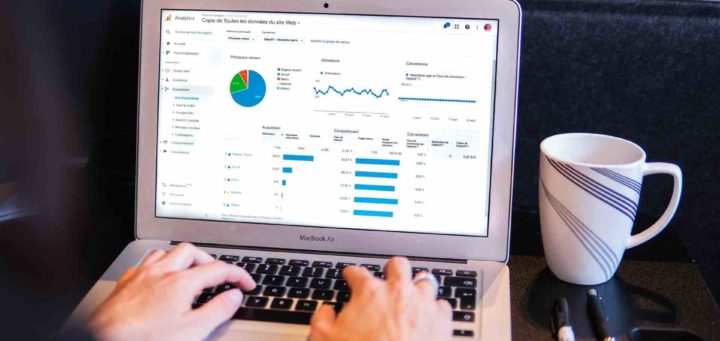Google’s 10th Birthday
Google Analytics celebrated its 10th birthday in November, and they published a great post highlighting their favorite Google Analytics updates from the last 10 years. It’s a great way to see some of their highly valued features in a detailed list:
Event Tracking – A powerful feature added early on that allows users to track visitor actions that don’t correspond directly to a pageview. With event tracking, specific actions like PDF downloads and video views are easily tracked, categorized, and analyzed. This feature has become critical as websites have moved away from a page-structured model. Read how PUMA uses custom filters, event tracking, and advanced segments to kick up order rates by 7%.
Real-Time Reporting – Providing insights into what is happening at any given moment, real-time reporting is a powerful set of reports that are invaluable when checking campaign tagging, launching new campaigns, or understanding the immediate impact of social media. Read how Obama for America used Google Analytics to democratize rapid, data-driven decision making.
Multi-Channel Funnels, Attribution Modeling, and Data-Driven Attribution – Multi-channel funnels was the first step in helping marketers move from last-click attribution and gain insights into the full path to conversion. Next up was Attribution Modeling, which helps businesses distribute credit to all marketing touch-points in the conversion process. We currently provide algorithmic models and a new set of reports designed to take the guesswork out of attribution and make it more accurate. Watch how attribution modeling increases profit for Baby Supermall.
Tag Management – As the complexity of digital marketing and data collection continues to increase, it became clear that our users needed better tools for managing tags. Google Tag Manager consolidates website tags with a single snippet of code and lets users manage everything from an easy to use interface. Read how Domino’s Increased Monthly Revenue by 6% with Google Analytics Premium and Google Tag Manager.
Analytics Academy – A great product is only as good as its users ability to take advantage of all it offers. As the world of marketing and analytics increased in complexity, it became more important for Google Analytics users to be able to stay up to speed on all the changes. In response to this need, the Analytics Academy offers users a hub to participate in free, online, community-based video courses about digital analytics and, specifically, Google Analytics.
Universal Analytics – Universal Analytics (UA) was a big step for Google Analytics on two dimensions. First, UA helps address the challenges of today’s multi-screen, multi-device world by combining visitor activities across devices into a single view. Secondly, it is the foundation of people-centric analytics and enables features like User ID, Lifetime-Value, and Cohorts reporting. Read how 1stdibs luxury marketplace hit new heights with Google Analytics Premium.
Measurement Protocol – This feature was one of the foundations for Universal Analytics. It helped Google Analytics change from a “web analytics” tool to “digital analytics” platform. The measurement protocol allows users to send, store, and visualize interaction data via an HTTP request. This enables developers to measure how users interact with their business from almost any environment including offline transactions and IoT (Internet of Things) devices. Read how AccuWeather unlocks cross-channel impact using Google Analytics Premium.
Mobile App Analytics – With the explosion of mobile apps and devices, being able to measure and improve both app marketing performance and the app experience is critical. Mobile App Analytics reports are tailored for mobile app developers and marketers to measure the entire mobile customer journey—from discovery to download to engagement. And, when used with the UserID feature, businesses can better understand cross device user behavior. Read how Certain Affinity used Google’s Mobile App Analytics to improve game design.
Enhanced Ecommerce – A complete revamp of how Google Analytics measures the ecommerce experience. It provides clear insight into new, important metrics about shopper behavior and conversions including: product detail views, ‘add to cart’ actions, internal campaign clicks, the success of internal merchandising tools, the checkout process, and purchase. Read how Brian Gavin Diamonds saw a 60% Increase in customer checkouts with enhanced ecommerce.
Remarketing – Remarketing with Google Analytics helps you easily create audiences based on behaviors of people who visit your website and mobile app. Those audiences are then made available for remarketing campaigns in AdWords, GDN and DoubleClick Bid Manager. Read how TransUnion sees drastic cost efficiencies and conversion improvement with Google Analytics Premium.
Introducing the Definitive Guide to Data-Driven Attribution
Google produced a really informative whitepaper on data-driven attribution a few months ago. In the guide, you’ll learn how attribution is critical to your marketing measurement, and how to use the guide to build your strategy, and the better measurement you can do for your company. You can download a copy of the guide here, at adometry by Google.
Announcing GA Support for Accelerated Mobile Pages (AMP) Analytics
In January, Google announced the launch of Accelerated Mobile Pages (AMP) Analytics. The AMP is an open source initiative that enables content to load instantaneously and provide a better web experience, and a few weeks ago, Google announced the launch of the analytics component that will enable measurement on all of the AMP pages. This is important as a few major tech partners of Google (Twitter, Pinterest, LinkedIn) have also since announced their support of AMP and using them in the future.
Introducing Autotrack for analytics.js
Autotrack for analytics.js attempts to leverage as many Google Analytics features as possible while requiring minimal manual implementation. The autotrack library is built as a collection of analytics.js plugins, making it easy to use the entire library as-is or to pick and choose only the plugins you need.
You can check out on the Google Analytics blog to keep track of any future updates and interesting announcements. To better understand your Google Analytics data and how you take actionable steps to improve your site, download a free copy of our guide.



